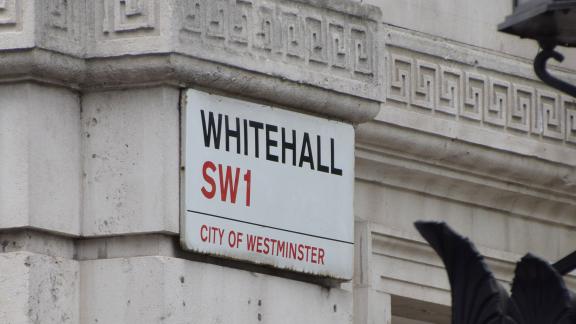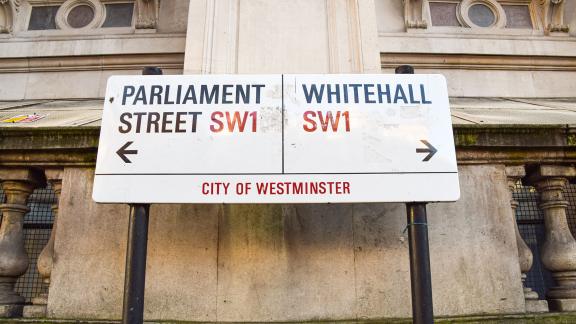The government’s response to the Hewitt review and the Health and Social Care Select Committee report: what you need to know

Key points
- The government has responded to Patricia Hewitt’s review of integrated care systems (ICSs) and the Health and Social Care Select Committee’s inquiry into ICSs. Overall the response is positive, with enthusiastic support for the review’s central message, most recommendations supported, and only around six of the total 36 rejected.
- The response demonstrates a significant degree of continued support from within government for ICSs, their four core purposes and their role in the health and social care system. Ministerial backing from across government departments over the long term will be crucial to their success, so we welcome a more expansive view of ICSs as more than just health or the NHS.
- We are encouraged that the government endorses the need to shift to a preventative model and acknowledges that further devolution is needed to achieve this – two key priorities for our members. The government’s new NHS mandate is evidence of a more streamlined approach to national target-setting and should be followed through in interactions between the Department of Health and Social Care (DHSC) ministers and officials, and system leaders.
- We welcome the commitment to rolling more funding into allocations where possible, avoiding a ‘drip, drip’ of small, ringfenced funding pots being allocated in-year in an inefficient way, which will better enable local leaders to plan. The review of capital spending will also give quicker access to funding for infrastructure and building digital capabilities.
- It is, however, disappointing that the government has not committed to a social care national workforce plan to complement the forthcoming national NHS workforce plan.
- We also have concerns about the 10 per cent planned further reduction to ICSs’ running cost allowance (RCA) in 2024/25, which the government is still planning to go ahead with, contrary to the Hewitt review’s recommendation, and risk distracting from ICSs’ purposes. This is on top of the 20 per cent cuts that are due in 2023/24 and an effective real-terms cut from inflation. There continues to be an under-valuing of the importance of NHS management and we believe this should be revisited ahead of the next financial year.
- NHS England’s letter to ICS leaders also indicates its strong support for the review. We will continue to work with NHS England to support implementation of its operating framework.
- We welcome many of the recommendations of both the Health and Social Care Select Committee inquiry and the review, which represent many of our members’ key priorities. We look forward to working with our members, the government and key partners including DHSC, NHS England, the Care Quality Commission (CQC) and the Local Government Association (LGA) to support a collaborative approach to implementation of the Hewitt review.
Background
The government chose to provide a joint response to both the Hewitt review and the Health and Social Care Select Committee’s ICS Autonomy and Accountability inquiry, as there is significant overlap. However, the two reports have different functions and implications.
Independent reviews are commissioned by ministers to consider particular issues and potential changes to policy. There is no obligation for government to adopt any of the recommendations, but more likely than an inquiry given the government has commissioned the review. Meanwhile, select committee inquiries are part of the parliamentary scrutiny process and enable the legislature to identify deficiencies in the policies of the executive and to set out how they should change them to make them more effective. The Health and Social Care Select Committee is largely concerned with examining the work of the DHSC in terms of spending, policies and administration, as well as the arm’s-length bodies (ALBs) that ‘sit under’ the department. The Autonomy and Accountability inquiry was initiated when the now-Chancellor Jeremy Hunt was chair of the committee.
The Hewitt review was published very early in the life of ICSs, seeking to support the significant changes envisaged under the Health and Social Care Act 2022 which demand a high level of commitment from central government and the wider health and care system.
Analysis
We welcome the government’s response to the Hewitt review, which is a clear indication of the government’s support for ICSs and a commitment to a model of devolved decision-making alongside appropriate accountability. This message was reinforced in the keynote speech by the Secretary of State for Health and Social Care at NHS ConfedExpo: “For me the opportunity is to devolve much more and to trust local decision-makers. In return to expect more meaningful transparency.”
The response is also an endorsement of the shift of resources to preventative care to deal with the challenges that the health and social care system faces today and in the future
The response is also an endorsement of the shift of resources to preventative care to deal with the challenges that the health and social care system faces today and in the future. This approach is a key priority for our members to support the changing health needs of their communities.
We recently set out the key priorities of ICS leaders for implementing the Hewitt review recommendations and we are pleased to see that many of these have been accepted, at least in part, in the government’s response.
Although the government has not committed to the Hewitt review recommendation to increase the total share of NHS budgets at ICS level going towards prevention by at least 1 per cent over the next five years, this does not preclude progress on this front locally. The government’s commitment to work with ICSs to support investment in prevention, including locally defining preventative healthcare spending and baselining, will support ICSs to make progress in this important area.
Fewer national targets with parity with local priorities will unlock much-needed devolution, empowering local leaders to deliver improvements to patient care. This more flexible approach is reflected in the government’s new NHS mandate and we will continue to work with the government and arm's-length bodies to ensure interactions with ICSs are aligned with this new approach, in line with the behaviours and ways of working described in the review, inquiry and NHS England’s operating framework.
We welcome the decision not to create additional mechanisms for individual MPs to hold ICSs to account
Enhanced local autonomy will be matched by appropriate accountability, including through the CQC. We are encouraged by the approach DHSC and the CQC are taking to developing ICS assessments and taking time to finesse their approach to ratings. We welcome the decision not to create additional mechanisms for individual MPs to hold ICSs to account (as was suggested in recommendation 18 of the Health and Social Care Select Committee inquiry), which would circumvent parliament, go against the spirit of the Hewitt review and move towards fewer national targets, missives and directives.
The government has committed to rolling more funding into allocations, avoiding the ‘drip, drip’ of small pots. This will let local leaders plan and make best use of the funding available to them. We will work with NHS England, DHSC, and the Treasury to ensure in-year settlements or ringfencing are limited to situations where it is absolutely necessary, as committed to in the response.
The government has also committed to an urgent review of capital spending to ensure there are no further delays to funding reaching new hospitals, improved diagnostics and digital technology. We look forward to seeing the government’s planned next steps and hope these include a rapid review of the capital sign-off process to ensure that existing budgets are reaching projects quickly and best used to meet local needs.
The government has decided not to enable flexibility to choose between payment mechanisms within the current NHS Payment Scheme, which will make it more difficult for ICS leaders to increase efficiency and achieve a shift in prevention. However, the government has opened the door to learning from international payment mechanism to shape future payment schemes.
It continues to be the case that expenditure on NHS management is undervalued
We also have concerns about the planned scale of cuts to ICSs’ Running Cost Allowance, which risks hindering capacity to deliver improvement and distract from ICSs’ core purposes. It continues to be the case that expenditure on NHS management is undervalued, despite all the evidence suggesting that the NHS is under-managed compared to international health systems. These latest cuts to management costs risk impeding progress against ICSs’ primary objectives. In particular, the scale of the immediate cuts to NHS running costs will distract from driving forward improvements in care, reducing waiting times and improving access to care for the public.
We will not fix the problems in the NHS without tackling head-on the challenges in social care
Finally, given the urgency of the social care workforce crisis, our members and their local communities will be disappointed that the government is not committing to a social care national workforce plan to complement the NHS workforce plan. We will not fix the problems in the NHS without tackling head-on the challenges in social care.
We look forward to working with the government and key partners including NHS England, the CQC and the LGA to support a collaborative approach to implementation with a focus on the priorities which are most important to ICS leaders. In the meantime, we will work with our members and partners to carry forward recommendations where we can to help local health and care systems to achieve their mission, including in developing a national leadership support offer, building on our peer review offer, and agreeing a common approach to co-production.
Recommendations and responses
Below are tables summarising the government’s response to each recommendation of the Hewitt review and of the Health and Social Care Select Committee inquiry on ICSs, and our interpretation of the extent to which each has been accepted.



